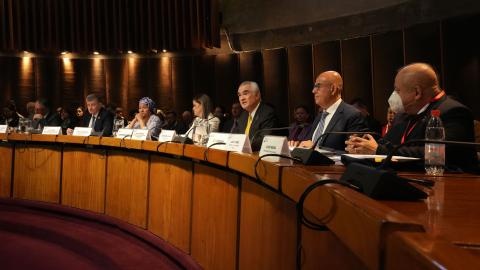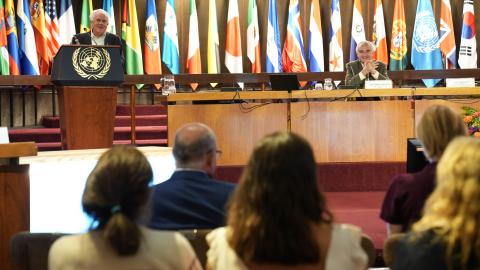Speech
A series of policy proposals related to education and the labor market were formulated by the Deputy Executive Secretary of the Economic Commission for Latin America and the Caribbean (ECLAC), Antonio Prado, during the fourth Challenges of Government Conference 2014: Flourishing Cities, organized by the Blavatnik School of Government at the University of Oxford.
The event took place on December 11-12 and brought together international experts to discuss the challenges of inclusive growth, the population’s well-being and environmental sustainability in light of the world’s rapid urbanization.
Prado spoke on a panel that focused on building efficient educational and labor systems, along with Tim Harris, Head of Investment at the Cape Town Mayor’s Office, and Denis Mizne, Chief Executive Officer at the Lemann Foundation in Brazil. The senior representative talked about key elements for the development of Latin America and the Caribbean, such as security in terms of job availability, income, hiring and unionization.
“Latin America and the Caribbean has high employment rates, but they are not sustainable,” which means that lower-productivity jobs that pay low salaries stand out, Prado explained. The senior official based his presentation on the institutional document Compacts for Equality: Towards a Sustainable Future, launched by ECLAC last May.
Although minimum wages have risen in the region in the last decade, only a few countries offer unemployment insurance and urban productivity has stagnated, the United Nations official added.
Authorities must prioritize investment in infrastructure, strengthen public employment systems, support the development of technological centers, and improve the provision and quality of services for preschool and primary education, Prado said. He also called on countries to fight informality and child labor, boost programs for technological training, respect trade unions, and support the organization of social movements.

